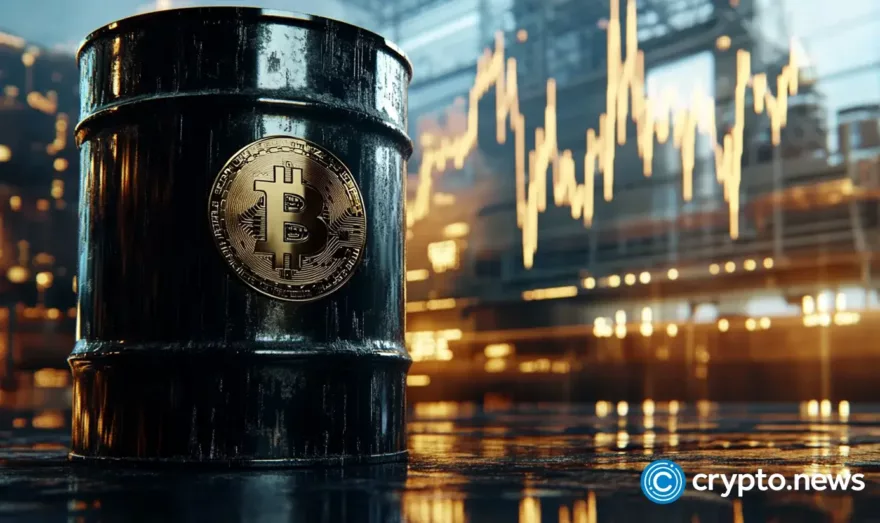How Blockchain Technology Can Help Improve Global Food Production and Supply Chain Management.

Blockchain technology has been influencing the world in many ways. It was first introduced through the crypto space but is now touching other sectors of the economy as well. This technology is probably our generation’s best invention and innovation because it dictates how money could work for us. Investing in it could change the lives of many significantly.
Blockchain in Food Production?
Yes, you read it correctly. Blockchain technology can be incorporated into different fields, including food production. Here it can streamline different functionalities that normal human resources cannot. One of the most crucial ways that it could improve this sector is by introducing innovative solutions like creating new products and better market analysis.
How Can Blockchain Technology Streamline Food Production?
Food production has been one of the largest challenges the human race has faced since time immemorial. This issue is still affecting many at the moment. Almost every day, you will hear large media outlets reporting on the food crises in different locations around the globe.
This issue is happening even in first-world countries. For instance, the US faced a baby formula shortage earlier this year. That occurrence shows that no one is immune to food production issues. However, blockchain technology could be the solution we are all waiting for. Here is how it can help to streamline food production and distribution.
Streamlined Decision Making
Blockchain technology is a digital ledger that records all the data and cannot be changed once uploaded. That functionality makes it very simple to go over data as it was first recorded, ensuring that it cannot be tampered with.
Once a proposed blockchain gets installed in a food production line, it records all entries and policies made throughout time. That makes it easy for key stakeholders to analyze the operations and make meaningful decisions.
The system will provide live data of the production and distribution lines, which will help the administrator realize what needs improvement. The decisions will also be enforced much easier as the blockchain system will make the changes as soon as they are recorded in a new data block.
More Efficient Supply Chain Management
Supply chain management of food production is one of the trickiest systems to ensure that food production is sustainable. This system tracks food products between producers, distributors, and consumers.
When a blockchain system is introduced, it will be tasked with recording data on how all stakeholders function in the operation. It will show the trends consumers get more inclined into at a given time.
That will help producers and distributors to ration their activities to satisfy and maintain the balance of the ecosystem. Therefore, the management of the supply chain will be much simpler.
Greater Customer Satisfaction
The installation of blockchain technology in food production can improve customer satisfaction in different ways. The key way is to collect data on customer shopping trends and provide it to producers and distributors, who capitalize on it to make the customers more satisfied.
The other way is through the use of blockchain-based e-commerce applications. Distributors can use such applications to help customers track their favorite products and shop them at the convenience of their remote locations. The applications could also mark the products customers use more and suggest alternatives that align with their budget.
Another feature that customers care a lot about is feedback. A blockchain-based shopping application could have an open feedback protocol that allows them to communicate with product distributors openly. Such a protocol would ensure that the information shared stays public and that everyone can see it.
It would help review the products and make the distributors’ replies public. Such openness would ensure that the customers feel more satisfied with the products on sale.
A Clearer Analysis Helps Food Producers to Tell Where to Concentrate Investment Efforts.
Producers need to determine where they should concentrate their investment efforts more. That would be made possible by introducing blockchain technology in the production and distribution lines.
When blockchain technology is integrated with food production systems, it records data from all activities that are going on. It will have records of the market changes like demand, supply, and changes in trends. It will also record the time taken during the movement of goods between different stations in the marketing process.
Such data can determine where the producers need to improve to increase the system’s efficiency. That means it would provide data crucial in analyzing how different stages of the production and distribution of food products affect the whole market.
As a result, a more efficient and robust production ecosystem would be realized.
The Introduction of Smart Contracts Makes the Payment Process More Efficient.
One of the key things that cause delays and reduced production efforts in the food industry is inefficient payment systems and structures. Food producers like farmers and industrialists sometimes suffer delayed payments and defaults from distributors and major buyers like governments.
Such occurrences make the producers work less efficiently due to poor motivation and insufficient capital to support sustainable bulk production. When productivity reduces, the food supply in the market falls, making the prices skyrocket. This move negatively affects the consumers as they are forced to spend more on shopping trips.
The introduction of smart contracts can solve this problem. Smart contracts are pre-programmed applications that run on blockchain and control how different things will be carried out and when they will be done.
In food production, such innovations can be used in controlling things like payment and dispatch processes. They can be programmed to only dispatch goods after full payment is made. That would ensure that defaults are not made through the partial payment tricks that are common in the markets. Such a system results in a more efficient payment system and hence a better distribution and production line.
Improved Product Data Security
Blockchain technology could be a solution to industrial espionage. A food production company could develop a private blockchain to help improve the security of its brands. Notably, such a network could transmit information on key aspects like the production process, upcoming changes, and possible deals.
Product data security is crucial since it could spell doom to a producer if it falls into the wrong hands. Their competitors could gain an upper hand which would be unfavorable to market dominance. This problem could, however, be solved by blockchain technology and help maintain fair markets.
Preventing Vices Like Fraud and Hoarding of Products
Vices like hoarding and fraud are major things weighing down food production worldwide. Some countries use agencies and agricultural societies to market products for farmers. Sensible leaders do not always lead these organizations.
Some of them are greedy enough to take away deserved money from producers. Another major vice is the intentional designing of a product shortage (hoarding). This vice greatly affects the market as it causes a sudden reduction in the supply of a product while the demand does not change.
The market begins to react violently to the change in supply vs. demand dynamic. If people are notified of a sudden reduction in the product supply, they rush in and panic buying. That further reduces the supply of the product leading to skyrocketing prices due to high demand.
Blockchain technology can help solve that issue since once it is integrated into a production system, it tracks the movement of products in all stages. Therefore, it will send notifications on how far the products are in the process. It will also ensure that money is tracked throughout the marketing process, improving the efficiency of payments. That also cancels out the fraudulent practices and provides evidence in case any happens.
Rebalancing Food Market Access Ensures That the Supply Remains Steady and Fair.
At most times, distributors and product marketers do not realize when and where to sell what products. That makes it very difficult to nail the markets that would give them the best prices and profit ranges for their products.
However, this could be a thing of the past upon the introduction of blockchain technology in global food production and supply. Governments could use such networks to determine the regions under their rule that require lesser or more food supply. Industrialists would also review records on different countries’ public blockchains to determine their products’ targets.
Fighting Copying of Products
The copying of products has become rampant in the markets. People tamper with brands as it is very difficult to develop and maintain one due to the market’s turmoils. This vice can be done on almost any product, including known food products. It could ruin the brand name where the fake one is unsatisfactory to the consumers.
Blockchain technology could solve this issue by adding scannable serial numbers on the wraps of specific products. That would allow users to certify the products against the database recorded safely on the network. Fakes would also save a brand’s name from tarnishing and killing.
Reducing Wastage
Wastage mostly results from a surplus supply of a product. It is always a balance that while a certain place has a surplus supply, another may have a low supply. If some find a way to tell when and where to supply their products as a way of hedging against wastage, they could turn profits almost effortlessly.
But is it possible? Yes, it is possible. If a producer has a blockchain technology that is fed with solutions like smart contracts to tell about the supply and demand dynamics of different markets, they could maximize their productivity. They could tell when and where to sell their products.
Not only would this increase the profitability of their activities, but it would also reduce the rate of the spoiling of their goods. It would also ensure that the consumers buy products at relatively fair prices globally due to a steady supply of products.
Who Is Using Blockchain Technology to Improve Food Supply Chain Management?
Some of the major food distributors that are using Blockchain technology include:
Walmart
Walmart has been using blockchain technology for a while to track products and control the spread of food contamination. It introduced the system following an ECOLI outbreak in 2020.
Following the outspread, Frank Yiannas, VP of Food Safety at Walmart, said:
“With a blockchain traceability solution, you could scan a product and trace that product back with precision and accuracy to source in seconds – not days or weeks… in the future a customer could potentially scan a bag of salad and know with certainty whether it’s been involved in a recall”.
Nestle’
Nestle is using blockchain technology to track and certify the growth of its key raw material, Rainforest Alliance-certified coffee brand Zoegas. It has installed this system as this raw material is crucial to making their finished product. This application of blockchain technology is among the few that we discussed above.
Bumble Bee Food Products
Bumble Bee is a fish production company. It records the operations of its yellow Tuna fishing, processing, and marketing process in a blockchain network. The network is responsible for overseeing the movement of the Fish product throughout the supply chain until it reaches the distributors. That is a typical example of the applications we also discussed earlier.
Final Word
Food production is a critical part of the global economy, and it is painful to see it dwindling. When it loses its stability, many people suffer, and it also causes some deaths due to starvation. Its stability is affected by things like natural forces and human errors. While it is hard to do away with natural forces like droughts, it is possible to counter human errors through innovative solutions like blockchain technology.
This technology has brought about an age where money works for us. Agricultural-based blockchain technology could be used to host a token and still save data for other transactions such as important policies. Such an innovation could better open the involved companies to a world of infinite possibilities of interaction with the markets.
It could also benefit consumers as it would promote market stability.












